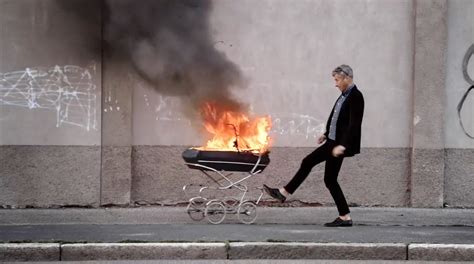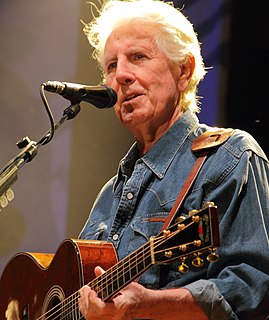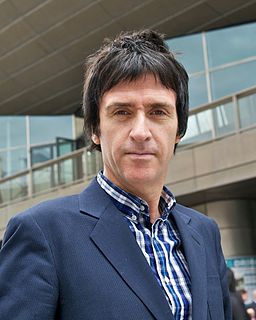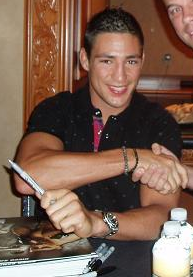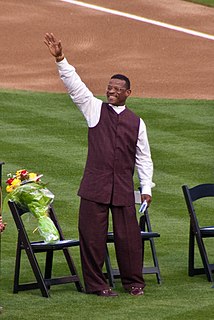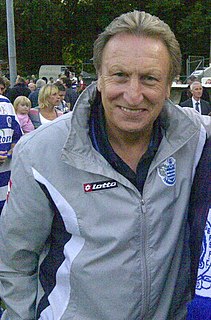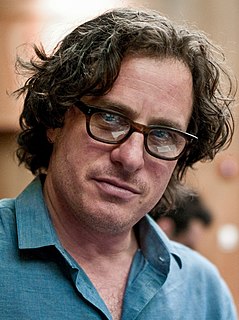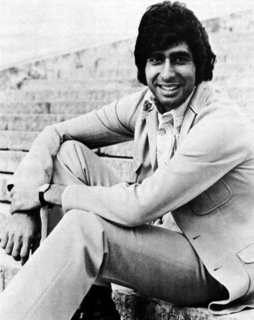A Quote by Maurizio Cattelan
I was a loser, most concerned with making a living. It took me 30 years to understand... I had to reinvent a system, find a way out, and set some rules that could work for me and a few others. I guess in the end that's what we all are trying to do.
Related Quotes
When I first found out I had HIV, I had to find somebody who was living with it, who could help me understand my journey and what I was going to have to deal with day-to-day. I found out that a person named Elizabeth Frazier was living with AIDS at the time, and so I called her up, and she took a meeting with me.
I don't understand why anyone would collect my work. Please understand... it's like writing Our House. It took me an hour, it was 30 years ago, get over it! But people say, No, no, it changed my life, and I don't understand that. I can't take that seriously as a producer of what I consider to be art. If they want to collect it, fantastic. If you see what I saw when I took it and it means something to you, then by all means collect it. If I make some money, um, fine.
I haven't been walking around for years with some burning desire to do a solo record. If I had, maybe I'd have made a record that was experimental. Usually, the idea of a solo record is to get some weird stuff out of your system, but I don't think like that. I wasn't interested in making something that was a hard listen - maybe I'll get around to that some other time. I wanted it to sound effortless, not like I was trying to reinvent the wheel.
Capitalism does not permit an even flow of economic resources. With this system, a small privileged few are rich beyond conscience, and almost all others are doomed to be poor at some level. That's the way the system works. And since we know that the system will not change the rules, we are going to have to change the system.
A good friend of mine took me out and had me hit off a tee. He made me understand what was my strike zone and - with my speed - the importance of making contact. So I give him a lot of credit for changing my game and making me the player I became. He showed me how to work on me and my game, and not worry about patterning myself after someone else and focusing on what they were capable of doing rather than what I was capable of doing.
I had written a book called "Boston Boy" some years ago, and that took me from the time I could speak, I guess, in Boston through the time when I finally left to come to New York. One was understanding and coping with anti-Semitism. Boston, at the time, was the most anti-Semitic city in the country. And I found out when I was an adolescent that you have to be crazy to go out after dark all by yourself; you'd get your head bashed in.
Siddharth accepts me in the way I am. In the first few months of marriage I got bogged down by the
notion that I had to juggle between handling home duties and starting work on a new film. He explained
I needn't be a superwoman. He understands that if he could go out to work and end up neglecting things
at home, so could I.
But you see," said Roark quietly, "I have, let’s say, sixty years to live. Most of that time will be spent working. I’ve chosen the work I want to do. If I find no joy in it, then I’m only condemning myself to sixty years of torture. And I can find the joy only if I do my work in the best way possible to me. But the best is a matter of standards—and I set my own standards. I inherit nothing. I stand at the end of no tradition. I may, perhaps, stand at the beginning of one.
Kevin [Drew] beat me to the punch because when he first sent "Sister OK" and I'm listening to it, it took me to a place that I had not been to in a long time. It took me to a place when you're a teenager. I understand it all now, but in a moment of confusion, in a moment of trying to find some kind of solid ground in an environment that was quicksand in my life, it's that first line just kills me all the time: "Well it's just that your sister said you'd be OK."
Nothing seems real anymore. Even the flames from the fire seem to beckon to me, drawing me into some great past life buried somewhere deep in my subconscious, if only I could find the key..if only..if only. Ever since my illness, my condition, I've been trying to find some logical way of passing my time, of justifying a means to an end.
